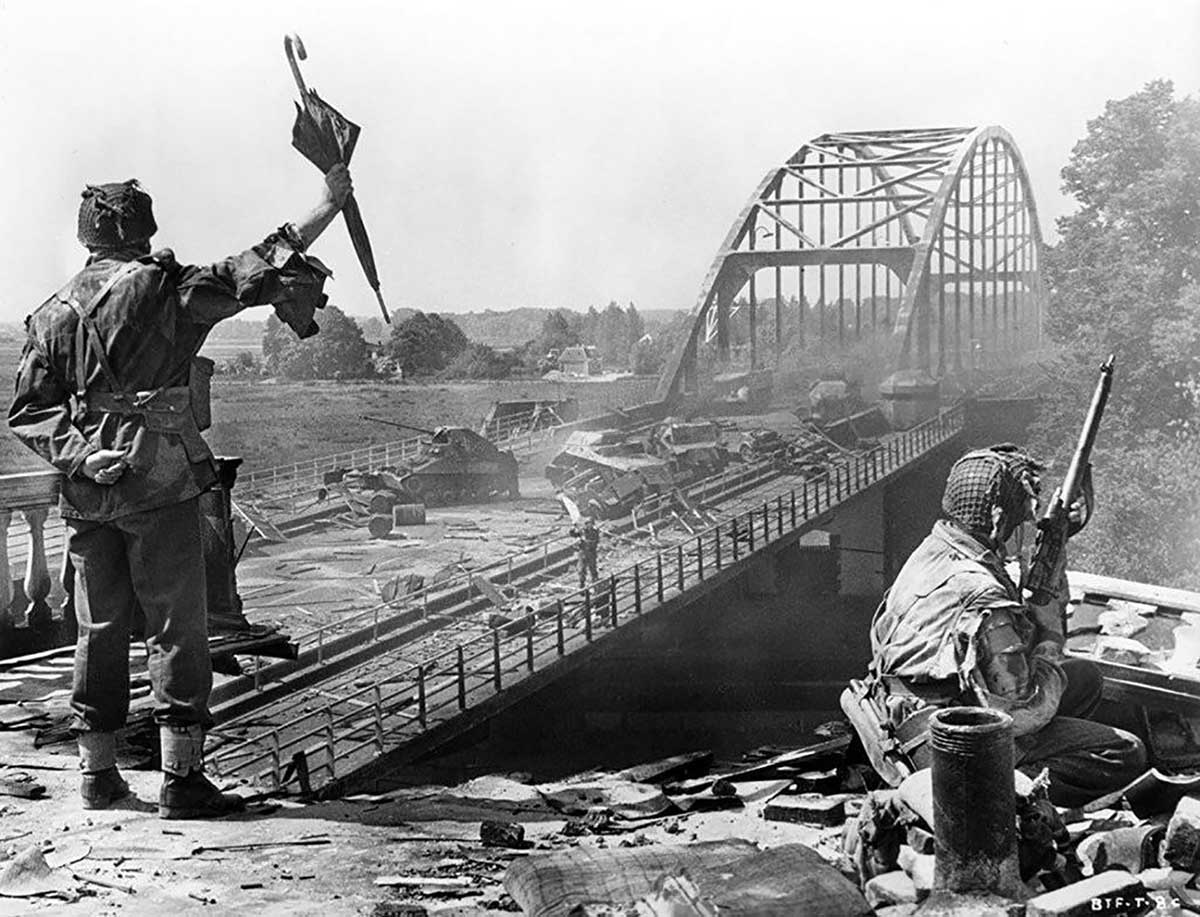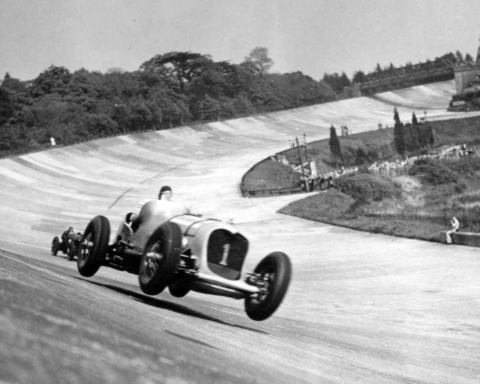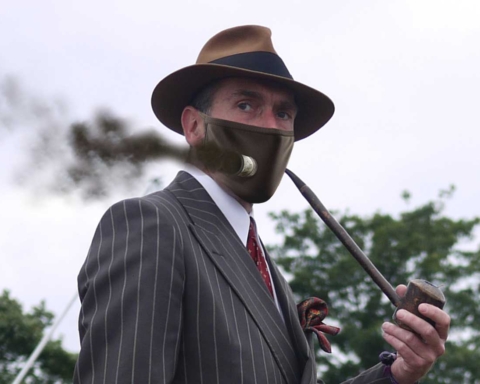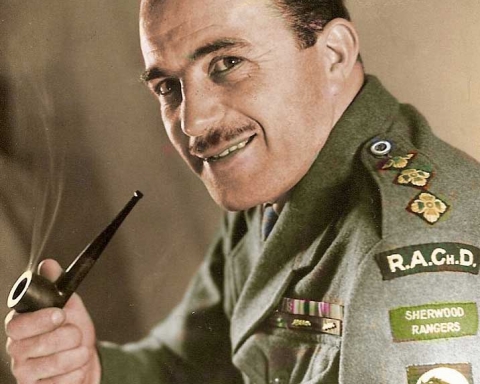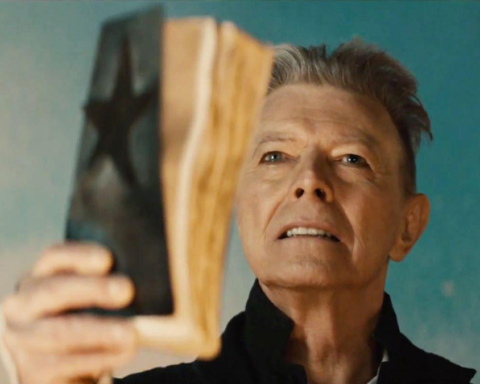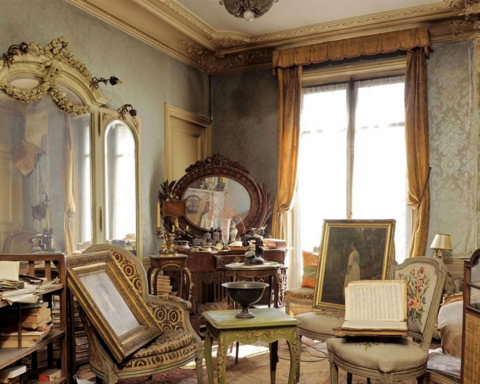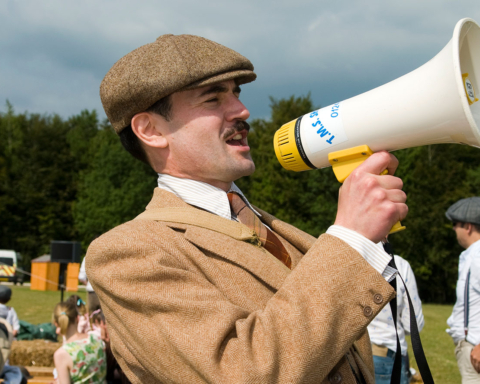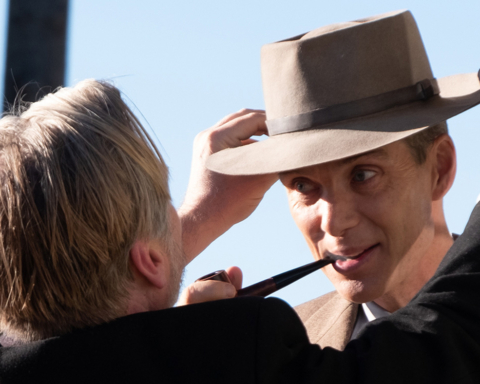On the 75th anniversary of VE Day, a celebration of the most eccentric, daring, heroic chaps who fought on their own terms and displayed remarkable sangfroid in the face of the enemy
DIGBY TATHAM-WARTER
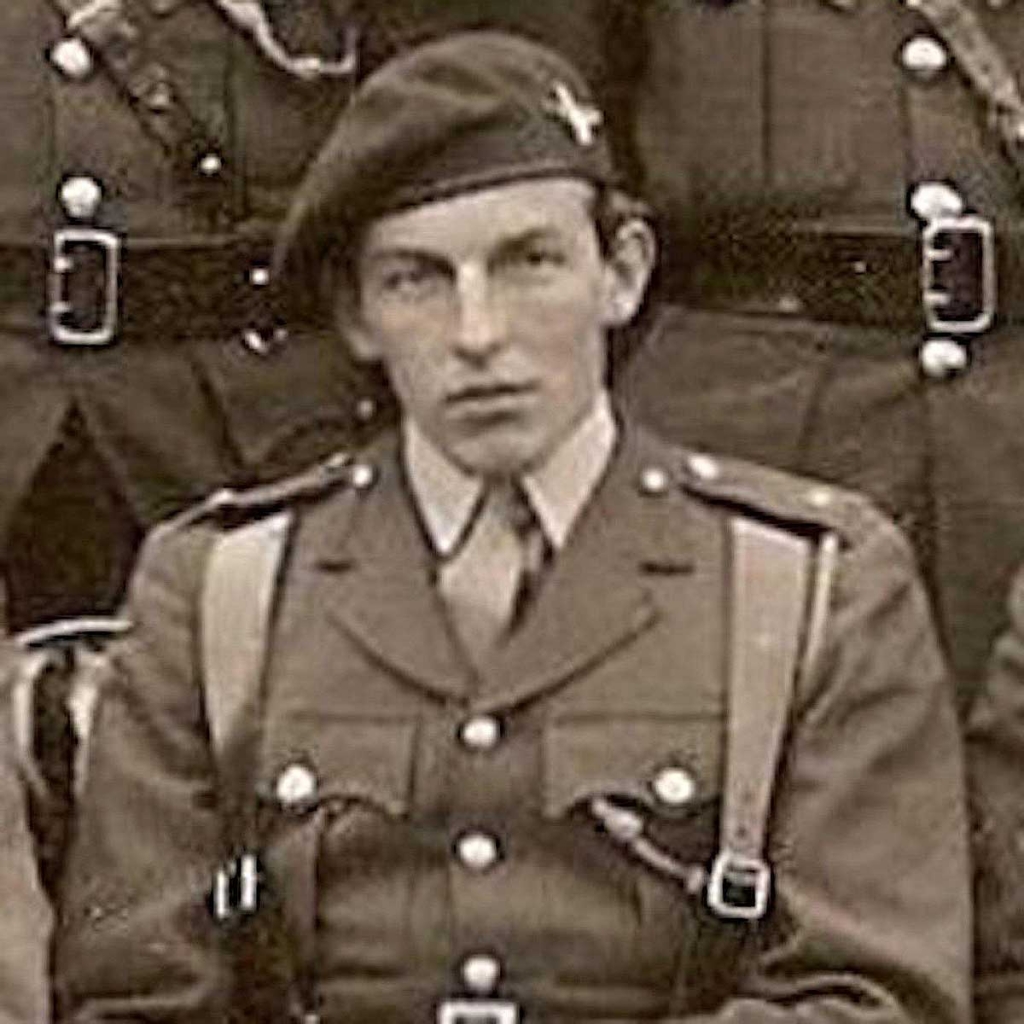
Formerly of the Oxford and Buckinghamshire Light Infantry, Major Tatham-Warter commanded the 2nd Parachute Battalion’s ‘A’ Company. ‘A’ Company were selected to spearhead the 2nd Battalion’s march to Arnhem bridge because Lt-Colonel Frost regarded Digby as a thruster, and not one to hang around – thereby making him the ideal choice to lead in an operation that depended on speed. Having captured the bridge and during the heavy fighting that followed, Digby could often be seen calmly strolling about the defences, seemingly oblivious to the constant threat of mortar barrages and sniper fire. Choosing to wear his red beret in place of a helmet and swinging his trademark umbrella as he went, Tatham-Warter, no matter how desperate the situation became, never failed in his ability to remain unconcerned and to encourage those around him.
Even old hands like Major Freddie Gough became disheartened when Mark IV Tanks crossed the Bridge and the battle seemed lost, but his gloom lifted instantly when he caught sight of Digby leading a bayonet charge against German infantry who had dared to enter British territory; carrying a pistol in one hand, madly swinging his umbrella about his head with the other, and now sporting a bowler hat on his head – which he had obtained from God knows where – doing his best to look like Charlie Chaplin.
On another occasion he used the rolled up umbrella to disable a German armoured car, simply by thrusting it through an observation slit in the vehicle and incapacitating the driver. Tatham-Warter later revealed that he carried the umbrella because he could never remember the password, and it would be quite obvious to anyone that “the bloody fool carrying the umbrella could only be an Englishman”.
MAJOR-GENERAL CHARLES ORDE WINGATE
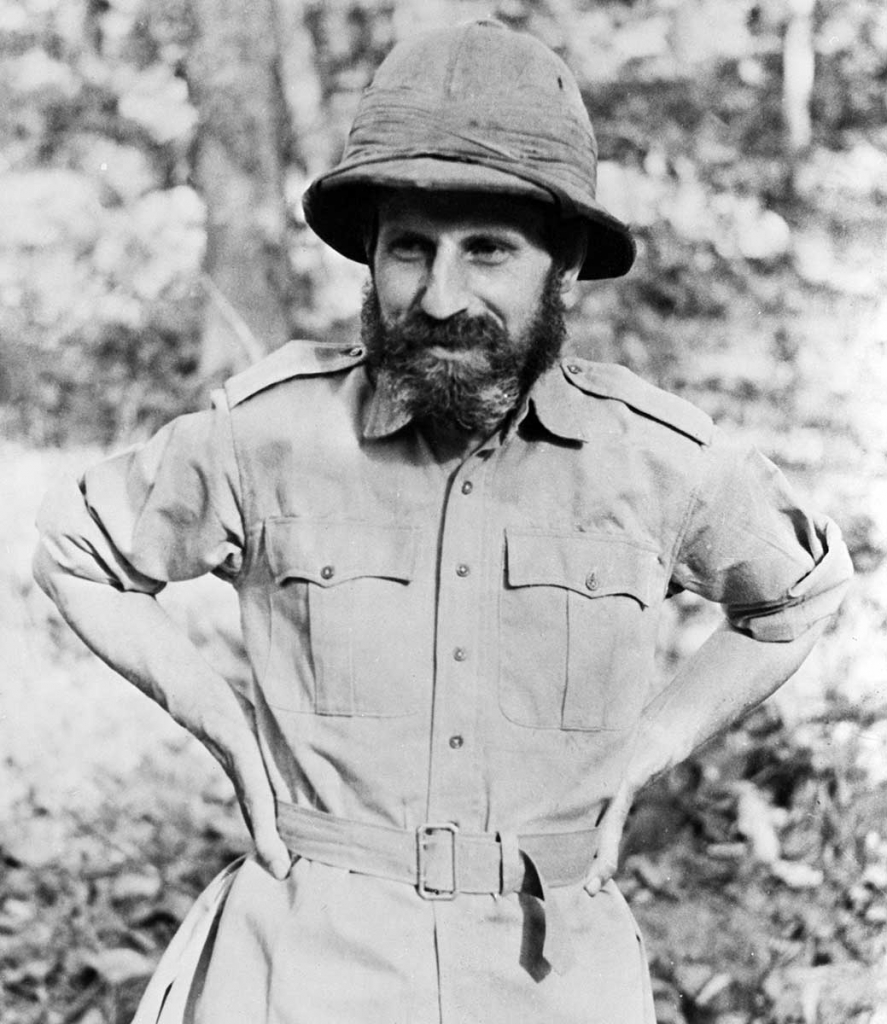
Orde Wingate is best known as the maverick genius behind Chindit operations in Burma during the Second World War. Far from being the model of a Major-General, however, Orde Wingate characteristically appeared scruffily attired, in ill-fitting uniform and antique pith helmet. He was not the only successful commander to eschew conventional uniform: Montgomery famously slouched about North Africa in bush hat and sweater. But Monty at least kept on such uniform as he wore, which is more than can be said for Orde Wingate.
Subordinates working for him in Palestine before the war were often startled to receive orders from their CO as he strode out of the shower clad in nothing more than a cap, soap and self-assurance. In Burma, Orde Wingate skipped showers altogether as inimical to health in the jungle climate, and held entire briefings in the nude, occasionally snacking on an onion he wore on a string round his neck, while grooming his lower man vigorously with a special brush. After Orde Wingate’s death in an aeroplane crash in 1944, Winston Churchill ruefully opined: ‘There was a man of genius, who might well have become also a man of destiny’. Churchill’s physician, on the other hand, opined that to him Wingate ‘seemed…hardly sane – in medical jargon, a borderline case’.
LT COL A.D. WINTLE
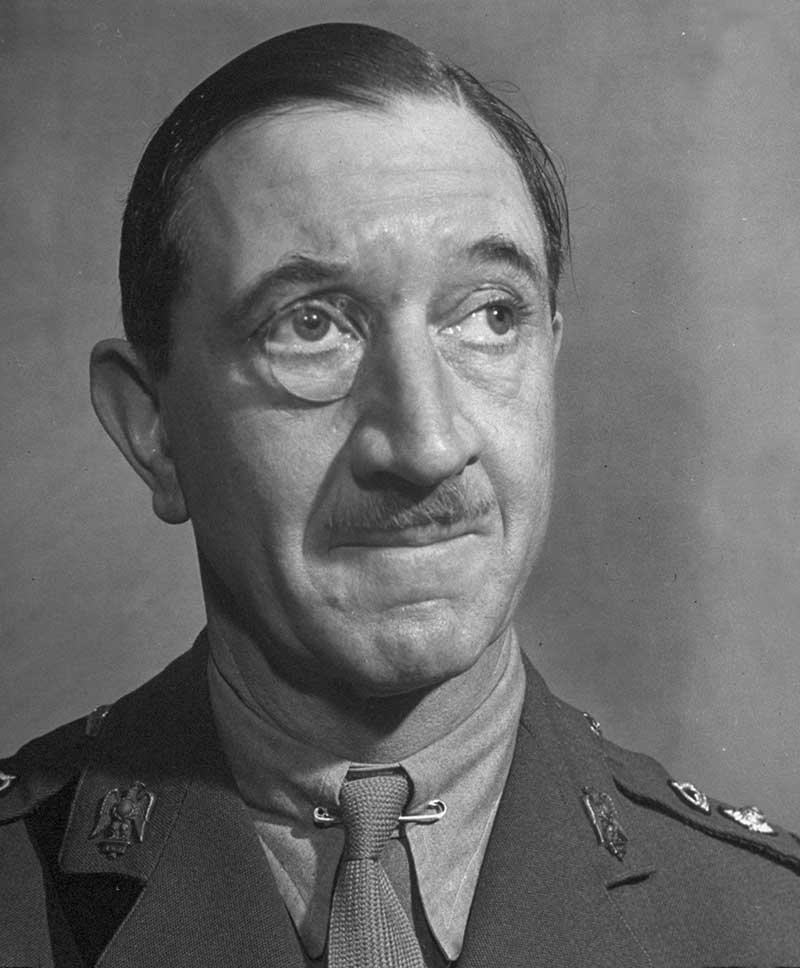
Along with a thirst for battle, Wintle’s academic prowess and language skills marked him out for liaison and intelligence duties. On an intelligence training course in India, Wintle’s team were instructed to produce a report on a local arsenal without being detected. While the other trainees crawled through undergrowth or disguised themselves as washerwomen, Wintle “Went to the Club and armed himself with a Blue Nile cocktail.” He knocked together a report using the local directory, a copy of the Armaments’ Year Book and an encyclopaedia, and had the Chief Clerk at Command Headquarters type it up. He spent the rest of the day having his hair cut, going for a swim, playing billiards and going out to lunch. He came top of his class, and when asked to explain his methods, cheerfully admitted he had never so much as laid eyes on the arsenal. The instructor bought him a drink.
Having personally promised French friends immediate action, he was driven to distraction by the inertia of the War Office, and took matters into his own hands. He passed himself off as a Senior Staff Officer at the Air Ministry and ordered an aircraft to take him to France, but the brass hats tumbled his ruse. Major Wintle confronted Air Commodore Boyle, and when persuasion failed, drew his pistol. Later news reports suggest that Wintle threatened to shoot off his own remaining finger. Wintle himself suggests he threatened Boyle; the Court Martial charge sheet suggests he did both.
Lt-Col Wintle was not surprised when Hitler’s War began in 1939. He transferred to the Royal Dragoons, where he was once in charge of a trooper who was critically ill with mastoiditis: “Stop dying at once,” Wintle commanded. “And when you get up, get your bloody hair cut.” The trooper obeyed, and survived.
Wintle was arrested and imprisoned at the Tower of London, where initial suspicion of him as a traitor turned into the warmest of welcomes when it was realised what he had done. At his trial Wintle threatened to name names, and most of the serious charges were dropped. He was reprimanded and posted to intelligence work in North Africa and Palestine.
Wintle always carried an umbrella but never unfurled it. Inside the furled umbrella was a note reading “This umbrella was stolen from Col. A.D. Wintle”.

